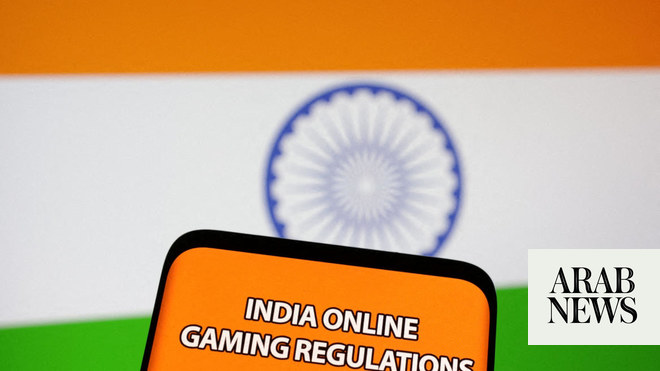
Journalists warn new rules are attempt to regulate online news portals
Tech giants are obliged to assist law enforcement in cybercrime, “unlawful” cases
NEW DELHI: Indian journalists and digital rights advocates have warned that new social media rules announced on Thursday will further undercut online privacy and freedom of expression in the country.
The new controls give the government more power to police content shared on social media and digital streaming platforms.
It means that Facebook, Twitter, WhatsApp and other services are more accountable to requests for removal of content and the identification of users who are deemed to have committed illegal acts by authorities.
Under the Intermediary Guidelines and Digital Media Ethics Code, social media platforms have to remove content within 36 hours of receiving a legal order and assist law enforcers in probing cybersecurity-related incidents within 72 hours of receiving a request.
The new rules, which Indian Information Technology Minister Ravi Shankar Prasad described as a “soft-touch oversight” mechanism, come two weeks after Twitter denied a government order to remove content on the farmer protests in New Delhi from its platform.
“The way these rules have come out, they will have a negative impact on privacy, freedom of speech, on creativity and the freedom of the press in India,” Nikhil Pahwa of India’s top Internet policy website MediaNama told Arab News, adding that the new controls are “the worst series of regulations on the Internet.”
He said: “It is very regressive and to my mind it is not backed by law. The rules need to be challenged in court, and if they are, the Indian government will probably lose.”
Social media giants enjoy a large presence in India, with the Facebook-owned WhatsApp messaging platform being used by 530 million people, YouTube by 448 million, Facebook by 41 million, Instagram by 21 million and Twitter by 10.7 million, according to Indian government data.
But none of the platforms have given detailed comments on the new regulations.
“The details of rules like these matter and we will carefully study the new rules,” Facebook said in a written response to a request for comment.
“We believe that regulation is beneficial when it safeguards citizens’ fundamental rights and reinforces online freedoms,” Twitter said in a statement.
However, because the new rules have been introduced as changes to the IT Act, which also regulates online media, journalists fear that the changes are an attempt to regulate news portals.
“We do know that the government is rattled by the work the digital media space does. Whether the only intention of these rules is for the government to have an overarching control over us, we will know only in time,” said Dhanya Rajendran, editor of news portal News Minute and chairperson of Digipub Foundation of India, which represents digital media organizations.
“Yes, we do have our suspicions and we are concerned that this could be the government’s motive,” she told Arab News.
Delhi-based journalist Paranjoy Guha Thakurta, who writes for News Click, a popular news portal known for independent journalism that had its offices raided by police last week, said the new regulations are “the government’s strategy to not just curb dissenting voices, but also to clamp down or curb their activities.”
He added: “The whole purpose or agenda is to clamp down on digital news media, which has been showing greater resilience and playing the role of adversaries against the government in power.”












